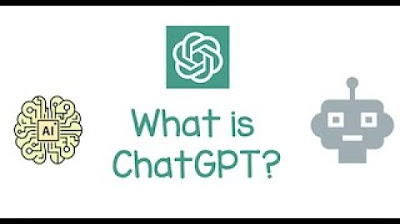FASTEST way to learn Coding with AI
Summary
TLDRThe video script advocates for AI-enhanced learning in programming, emphasizing its adaptability to individual learning styles and paces. It contrasts AI's personalized approach with traditional online courses' fixed curricula. AI acts as a 24/7 tutor, offering deep dives into concepts, tailored practice, and coding assistance. The script introduces a structured learning approach using AI, following the 80/20 rule to focus on core concepts for rapid skill development. It recommends using AI tools like Chat GPT, Gemini, and Claude for varied perspectives and detailed learning. The script outlines a methodical study plan creation, project-based learning, and active recall for effective knowledge retention, positioning AI as a guide rather than a solution provider in the learning journey.
Takeaways
- 🤖 Online courses have limitations like a fixed curriculum and set learning pace, which may not suit everyone's individual learning style.
- 🧠 AI can offer personalized learning experiences, adapting to different understanding and learning speeds, making it a valuable tool for individualized education.
- 🔍 AI's ability to provide information on demand and explore tangential topics can enhance curiosity-driven learning.
- 🛠 AI can adapt to a learner's style by explaining concepts in various ways, generating tailored practice problems, and assisting with tasks like debugging code.
- 🚀 AI challenges learners to think critically, question, and explore, rather than merely providing easy answers.
- 📚 When learning with AI, you can get immediate clarification and explore related concepts, which is not always possible with traditional online courses.
- 📈 The 80/20 rule in learning suggests focusing on the 20% of concepts that yield 80% of the results, allowing for quick progress and real-world application.
- 📝 AI tools like ChatGPT, Gemini, and Claude can be consulted for different perspectives, with Claude noted for its detailed and nuanced answers.
- 📈 A structured approach to learning with AI involves creating a study plan, focusing on core concepts, and then applying knowledge through project-based learning.
- 💡 Active recall is emphasized as a key to effective learning, where learners engage with and apply concepts rather than passively reading about them.
- 🏗️ Project-based learning is encouraged to cement knowledge and simulate real-world programming experiences, with AI serving as a guide rather than doing the work.
Q & A
What are some limitations of traditional online courses mentioned in the script?
-Traditional online courses have a fixed curriculum and a set path that everyone follows, which does not accommodate different learning styles and speeds.
How does AI enhance the learning experience according to the script?
-AI acts as a personal tutor available 24/7, adapting to the learner's style, providing information on demand, and generating tailored practice problems and explanations.
What is the significance of the '80/20 rule' in the context of learning programming with AI?
-The '80/20 rule' suggests focusing on the 20% of concepts that yield 80% of the results, allowing learners to start building projects quickly and effectively.
Why is active recall important in the learning process as described in the script?
-Active recall is essential because it involves engaging with and applying concepts, which is more effective for learning than passively reviewing information.
What are the three big AI tools mentioned for learning programming, and what are they used for?
-The three big AI tools mentioned are Chat GPT, Gemini, and Claude. They are used as consultants to provide different perspectives and detailed answers for learning complex topics.
How does the script suggest using AI to challenge learners rather than making learning too easy?
-AI should challenge learners to think, question, and explore, rather than simply providing information. It should encourage active learning and problem-solving.
What is the purpose of suggesting projects of increasing difficulty after the core learning period?
-Suggesting projects of increasing difficulty helps learners apply and expand their knowledge, reinforcing key concepts through practical application.
Why is it important to struggle with the projects while learning programming?
-Struggling with projects is important because it leads to real learning, as it forces learners to apply their knowledge, encounter real-world problems, and learn how to solve them.
What is the benefit of using detailed and well-thought-out prompts when working with AI for learning?
-Using detailed and well-thought-out prompts helps unlock AI's true potential, leading to more effective communication and deeper understanding of the concepts being learned.
How does learning to work with AI in programming prepare one for the future?
-Learning to work with AI in programming prepares one for a future where AI collaboration is common across fields, making the ability to effectively use AI tools a crucial skill.
Outlines

This section is available to paid users only. Please upgrade to access this part.
Upgrade NowMindmap

This section is available to paid users only. Please upgrade to access this part.
Upgrade NowKeywords

This section is available to paid users only. Please upgrade to access this part.
Upgrade NowHighlights

This section is available to paid users only. Please upgrade to access this part.
Upgrade NowTranscripts

This section is available to paid users only. Please upgrade to access this part.
Upgrade NowBrowse More Related Video

KONSEP PENDIDIKAN YANG MEMERDEKAKAN

AI: The Future of Education

Power of Python In Artificial Intelligence, Web-Development, Data-science!

【松尾豊も大注目】生成AIでホワイトカラーの仕事が激変?【ひろゆきも仰天】

This is Why Programming Is Hard For you

ChatGPT | What is ChatGPT | ChatGPT in 6 Minutes | Introduction to ChatGPT | ChatGPT Simplified
5.0 / 5 (0 votes)